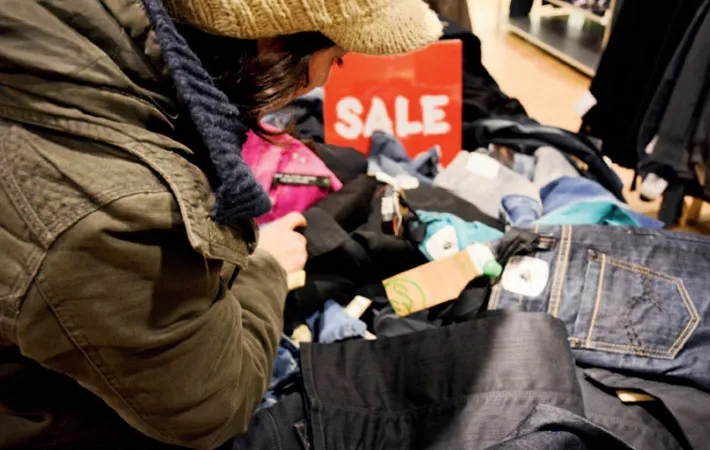
Many Europeans are willing to buy or receive second-hand clothes, especially if there is a broader and better quality range available. In the United Kingdom, two-thirds of customers already use second-hand clothes. Clothing reuse is far better for the environment than recycling, according to a new report by Friends of the Earth Europe, REdUSE and Global 2000.
For every tonne of cotton T-shirts reused, 12 tonnes of carbon dioxide equivalent is saved.
The report, titled ‘Less is more: Resource efficiency through waste collection, recycling and reuse of aluminum, cotton and lithium in Europe’, said an increase in collection services for quality clothing is significantly more beneficial.
Unnecessary landfill and incineration of clothing and other textiles must be minimised, and therefore, legally-binding national regulations for high collection rates and investment in recycling infrastructure need to be implemented, it said.
The creation of jobs in the recycling and reuse of textiles in Europe would benefit the environment and provide much-needed employment, it said.
In addition, extended producer responsibility (EPR) strategies should be applied, whereby the associated life-cycle environmental costs of clothing products are integrated into their price. This approach holds producers to account for the costs of managing their products at the end-of-life stage in order to reduce toxicity and waste, the report noted.
The resource impacts of clothing sold to consumers needs to be reduced, which would involve measuring the carbon, water, material and land needed for the production of garments, from the start through to the end of the supply chain, it said.
Alternative fibres with lower social and environmental impact could be sourced. Bans on transgenic cotton cultivation and import could be applied to Bt cotton as well as other such fibres. Bans could also be applied to fuel and feed crops that result in land grabbing, high pesticide usage and environmental damage.
The exploitation of workers in global supply chains has to be ended. The legal enforcement of principles based on equality, human rights and security would ensure workers receive a living wage, fair benefits such as maternity and sick pay, and the freedom of association to form trade unions, the report added.
Post time: Dec-10-2021